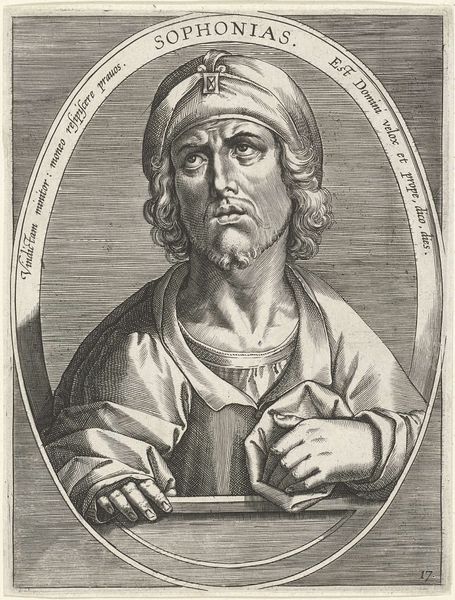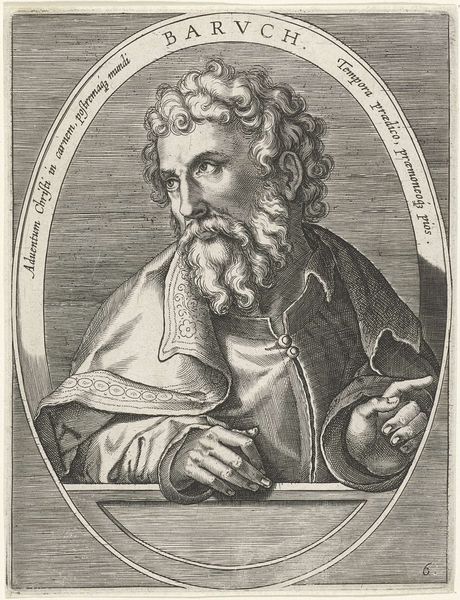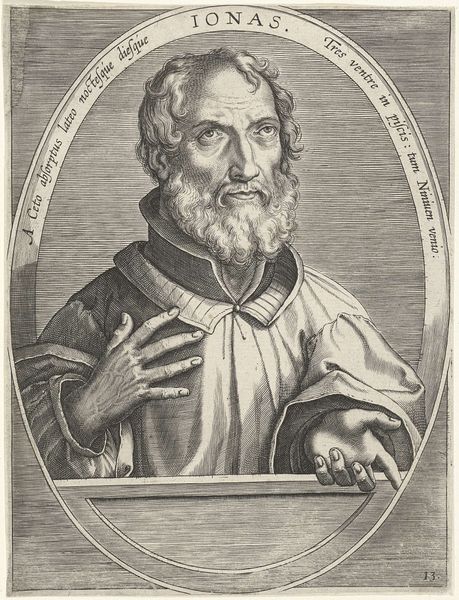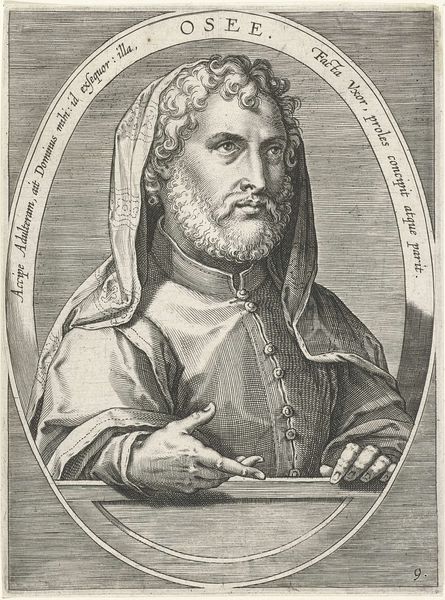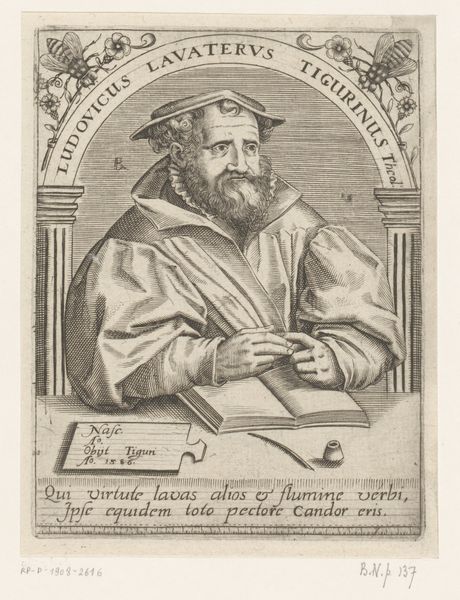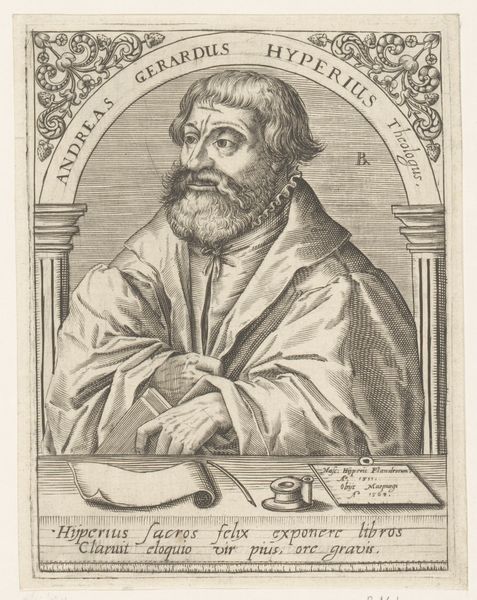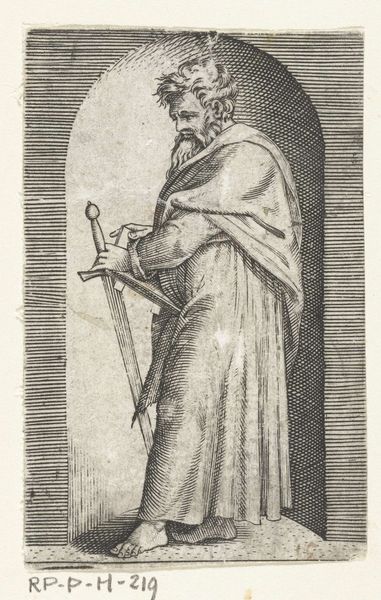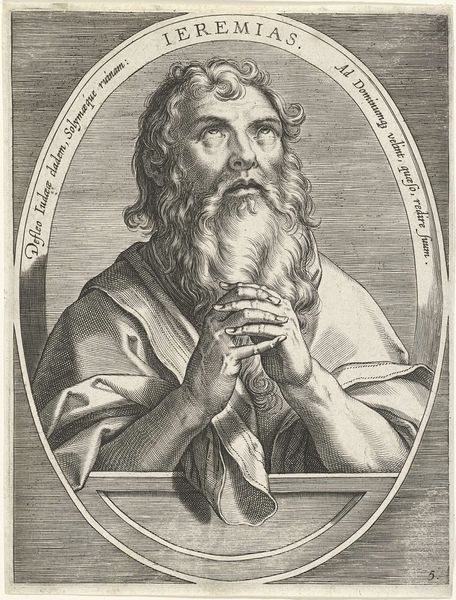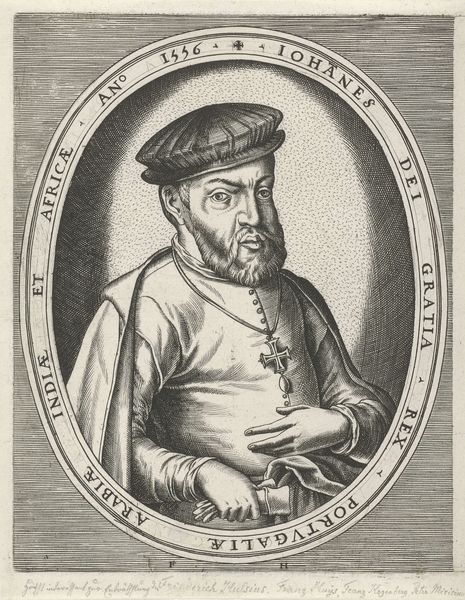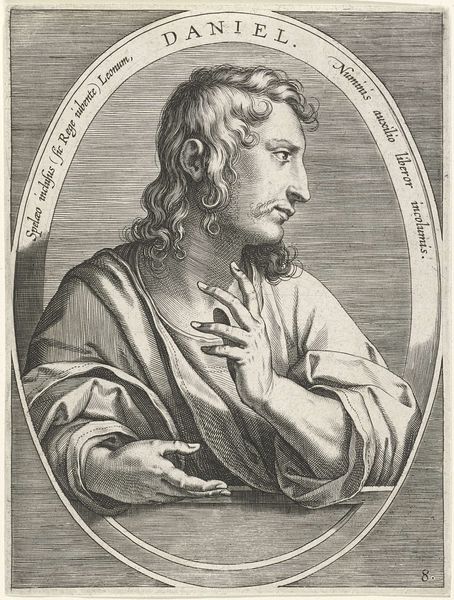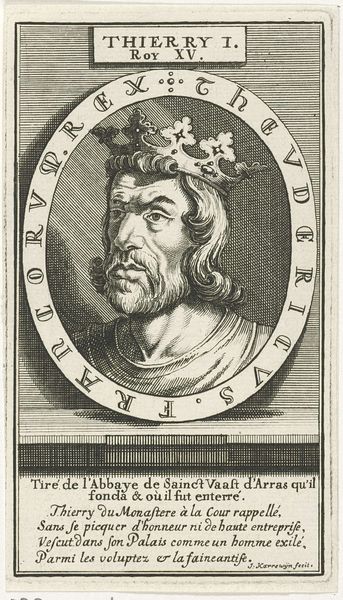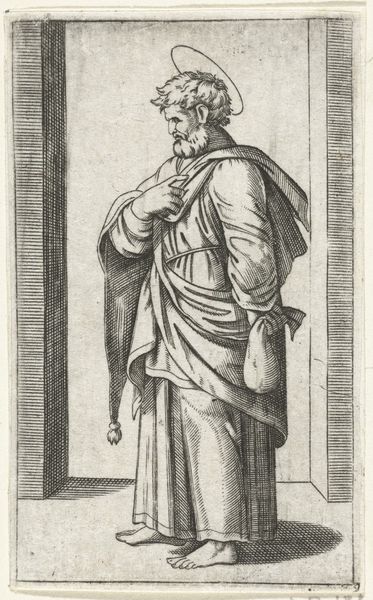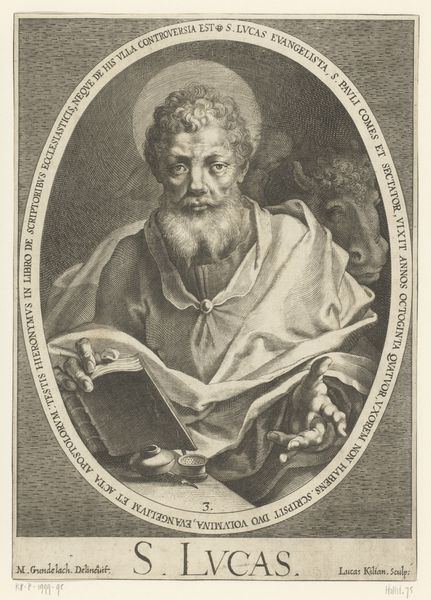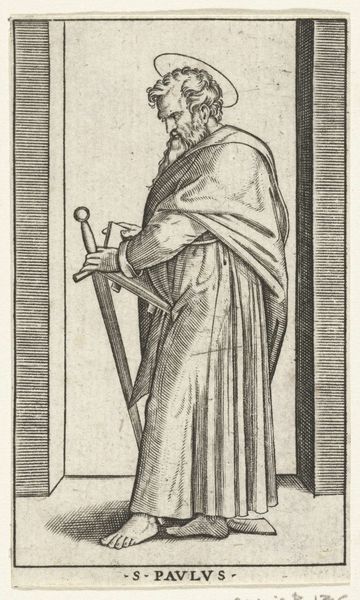
print, engraving
#
portrait
#
baroque
# print
#
old engraving style
#
caricature
#
figuration
#
form
#
line
#
history-painting
#
northern-renaissance
#
engraving
#
portrait art
Dimensions: height 175 mm, width 135 mm
Copyright: Rijks Museum: Open Domain
This print of Joël was created by Cornelis Galle I, sometime between the late 16th and mid-17th century. It’s made through engraving, a printmaking technique that demands both skill and labor. Look closely, and you'll see how the image emerges from the dense network of lines. These are incised into a metal plate – probably copper – with a tool called a burin. Ink is then forced into these lines, and the image transferred to paper under high pressure. It is a painstaking process, requiring a steady hand and years of practice to master. The very materiality of the print – the weight of the paper, the feel of the ink – speaks to the broader social context of its production. Engravings like this were often made in workshops, with specialized craftsmen contributing to different stages of the process. This division of labor reflects the increasingly commercial nature of art production at the time, as prints became a popular and affordable way to disseminate images and ideas. In appreciating this work, we must recognize the critical role of materials, making, and context, to truly understand its significance.
Comments
No comments
Be the first to comment and join the conversation on the ultimate creative platform.
